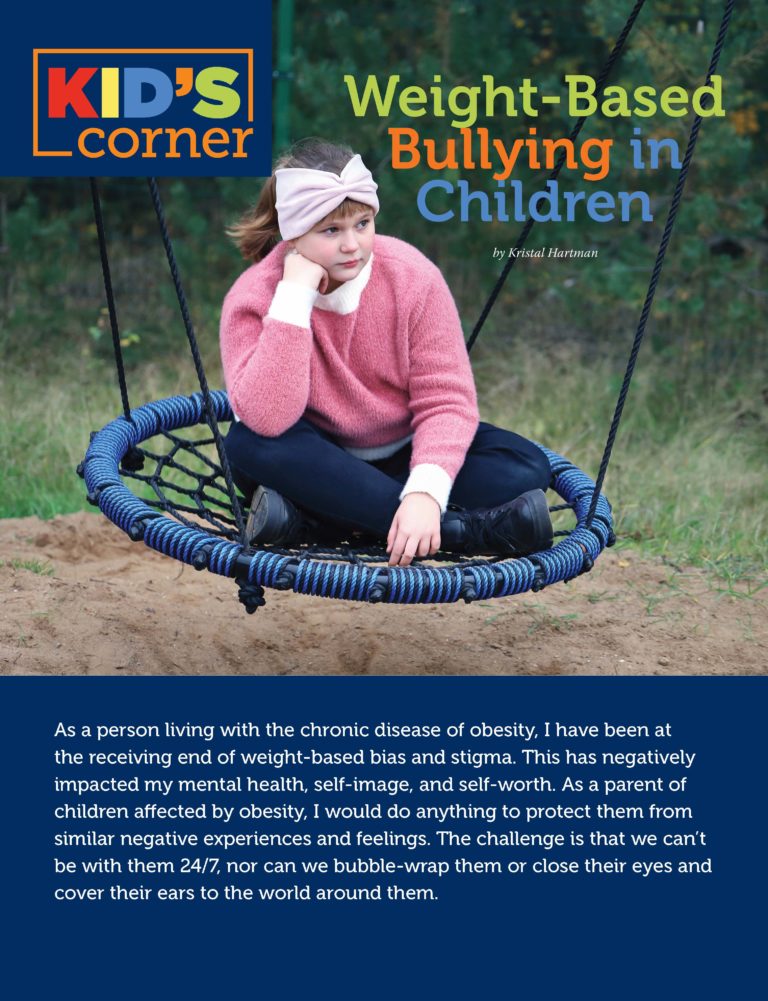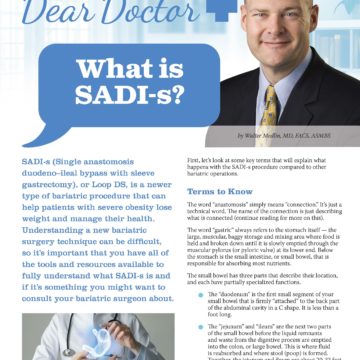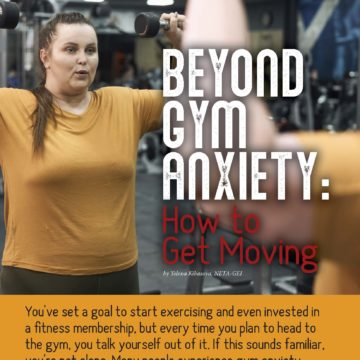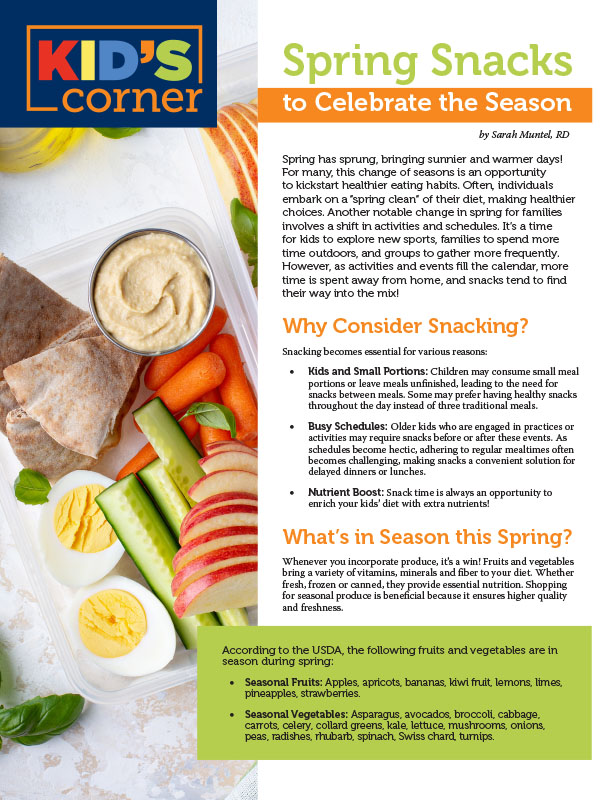Kid’s Corner: Weight-Based Bullying in Children


by Kristal Hartman
Fall 2022
As a person living with the chronic disease of obesity, I have been at the receiving end of weight-based bias and stigma. This has negatively impacted my mental health, self-image, and self-worth. As a parent of children affected by obesity, I would do anything to protect them from similar negative experiences and feelings. The challenge is that we can’t be with them 24/7, nor can we bubble-wrap them or close their eyes and cover their ears to the world around them.
What we do know is that kids affected by obesity or who struggle with weight often face weight-related stereotypes, social exclusion, and discrimination. Dealing with these challenges can contribute to depression, anxiety, low self-esteem and poor body image. Additionally, we know that children with obesity suffer from a lower health-related quality of life. Studies show that children and adolescents with obesity report a quality of life that is comparable to children who are diagnosed with cancer and are receiving chemotherapy. According to NationWideChildrens.org, despite a rise in public awareness and zero-tolerance policies in many schools, weight-related bullying is a common experience for many kids who struggle with weight.
This is particularly true for cyberbullying, as children and adolescents spend more time interacting with others on online gaming platforms and social media apps. Online bullying and body shaming are more frequent now than ever before because social media platforms allow people to remain anonymous and/or say things they would never say to a person’s face. To learn more about cyberbullying, please visit StopBullying.gov.
What Are Potential Signs That Our Kids May Be Experiencing Weight-Based Bullying?
Weight-related bullying can lead to an increase in negative feelings, including:
- Anxiety
- Depression
- Irritability
- Low energy
- Fatigue
- Difficulty sleeping
- Isolation
- Lack of interest in previously enjoyed activities
Some of these children eventually dread going to school and are more likely to skip class. According to research, youth who are teased about their body weight are also likely to avoid physical activities at school, like gym class or sports, often because these are settings where they feel embarrassed and vulnerable to teasing. This can often lead to emotional eating, further weight gain, increased bullying, and a cycle that starts all over again.
Females tend to be more vulnerable to the negative impact of weight-related bullying due to the importance of body image often placed on their self-esteem and self-worth (especially with the unrealistic beauty standards that are promoted on social media). What is most concerning is the relationship between bullying and suicide, especially in youth with obesity. According to NationWideChildrens.org and HealthyChildren.org, kids who are affected by obesity that are victims of weight-related teasing or bullying are two to three times more likely to report thoughts of suicide or to engage in self-harming behavior, such as cutting. This is an alarming statistic.
How Do We Help Our Kids Recognize That They’ve Experienced Weight-Based Bullying?
Kids will know that they have been teased and bullied about their weight if it is verbal or written because this is the most obvious form of bullying. Words will hurt whether they are hearing them out loud from classmates or reading comments on social media. Encourage your kids to share any instance of verbal or written weight-related bullying with you.
Children are less likely to recognize weight-based bias if it comes from the adults in their lives (teachers, coaches, counselors, other parents, doctors, family members, etc.). This is where you can step in as an adult and stand up to this less obvious form of weight-based bullying by calling it out when you see it.
What Can We Do as Parents to Help Our Children When They’ve Been Bullied Because of Their Weight?
My strongest suggestion is to find a supportive pediatric medical team that specializes in the treatment of both the physical and psychological effects of obesity for the child(ren) and family. Thanks to HealthyChildren.org, these are additional tips that I have found incredibly useful with my own kids.
- Emphasize that no one deserves to be teased. Regardless of whether it is because of weight, skin color, or any other reason, bullying is never okay.
- Tell an adult. Encourage your child to talk to a trusted teacher or coach at school.
- Stay in a group. Help them to identify at least one other friend they can be with when they walk the school hallways, sit in the cafeteria, or take the bus.
- As much as they possibly can, they should not react to the taunting. If the school bully sees them becoming anxious or even start to cry, the teasing may get worse. Encourage your child to maintain their composure, turn around, and walk away.
- Let your child’s teacher know about the bullying. The teacher may be able to step in and put an end to it. If the teasing continues, ask the school principal or your child’s school counselor to get involved. Your child may be embarrassed to have you talk to the principal, but you can’t afford to let them be mistreated any further. Many schools now have anti-bullying policies, but weight-based teasing isn’t always on the radar. It is generally better to let the teacher and principal handle the situation rather than contacting the bully or the bully’s parents yourself.
- Convince your child to try bonding more closely with the friends they do have at school. If they hang out with a group on the playground or in the lunchroom, they are less likely to be singled out for mistreatment.
- Don’t forget about computers and phones. Weight-based bullying through social media is very hurtful. Monitor your child’s social media activity and take any cyberbullying against them seriously.
- Find activities outside of school that your child can participate in, where they can develop a new friend group that may be less inclined to tease.
- Spend time with your child and treat them as an important person. Help maintain your child’s self-esteem by demonstrating respect and acceptance and telling them often, “I believe in you.”
- Reinforce your child’s strengths and admirable qualities that have nothing to do with body weight.
Conclusion
As parents, we will always do our best to protect our children from everything, especially weight-based bullying. If your child is affected by obesity and is experiencing bullying, these tips can help you teach your child how to stand up to bullies and help you protect them as best as you can.
About the Author:
Kristal Hartman is a proud member of the Obesity Action Coalition (OAC) and is honored to serve as the Co-Chair on the OAC National Board of Directors. Kristal Hartman is also the Co-Chair of the Convention Committee and serves on the Executive Committee and the Long-range Planning Committee. She had gastric sleeve surgery in August 2014, and it was the hardest and best decision she ever made for herself. She is passionate about her work in Biomarker and Genetic Research for Precision Medicine in Oncology, Obesity, and other Chronic Diseases.
by Sarah Muntel, RD Spring 2024 Spring has sprung, bringing sunnier and warmer days! For many, this…
Read Articleby Robyn Pashby, PhD Winter 2024 “No one is ever going to date you if you don’t…
Read Articleby Michelle “Shelly” Vicari Winter 2024 Winter has arrived! Don’t allow the chilly and damp weather to…
Read Article









